Fake news has become something of a hot topic in recent months. So much so that Collins dictionary even announced “fake news” as their word of the year for 2017.
The Western democracies can at least boast a comparatively good record when it comes to freedom of the press. Journalists can expect to do their job without fear of imprisonment or execution. That’s by no means the case everywhere.
Reporters Without Borders ranks 180 countries based on their commitment to press freedom. This list will dive to the murky depths of those rankings, taking a closer look at those countries where the government exerts control over the media and attempts to crush any alternative point of view.
10. Equatorial Guinea
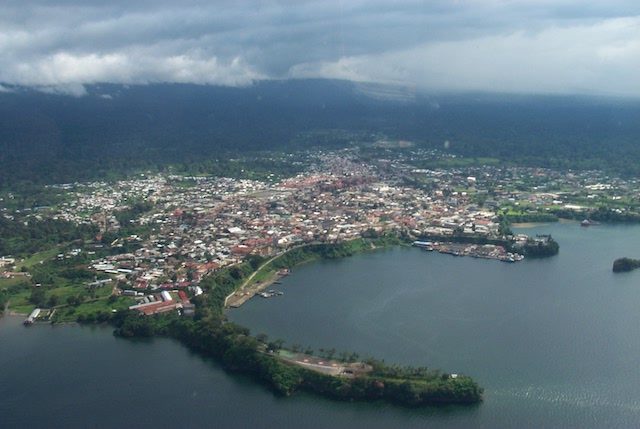
The African nation of Equatorial Guinea gained its independence from Spain in 1968. Unfortunately, this just meant swapping one dictator for another, and Francisco Macias Nguema proved to be a significant downgrade from Francisco Franco. Nguema claimed to be a sorcerer, amassed a huge collection of human skulls, and took great pleasure in torturing political opponents. It’s even been suggested that he may have been a cannibal. Needless to say, Macias was not a supporter of a free press; to be a journalist was in and of itself a crime punishable by death.
With a third of the population having already fled the country, Nguema was overthrown and executed by his nephew, Teodoro Obiang Nguema Mbasogo, in 1979. Equatorial Guinea’s soldiers were so afraid of Nguema’s supposed magical powers that a firing squad had to be hired from Morocco.
The discovery of vast oil reserves in 1995 should have made the people of Equatorial Guinea very wealthy. While per capita income is now comparable to the likes of Great Britain and South Korea, the oil riches have not been shared out evenly. Some three-quarters of the population still live in grinding poverty.
The plight of the people of Equatorial Guinea is rarely reported on, not least because Mbasogo’s government routinely denies visas to foreign journalists. Those who are allowed to enter are closely monitored. Any misstep can be punished, and even taking photographs can result in imprisonment.
While the international community suspects Mbasogo of corruption on a massive scale, Equatorial Guinea’s compliant media paints a glowing picture of benevolent governance. This is not particularly surprising, since the country’s television and radio stations are run by either the state or trusted members of Mbasogo’s family.
9. Djibouti
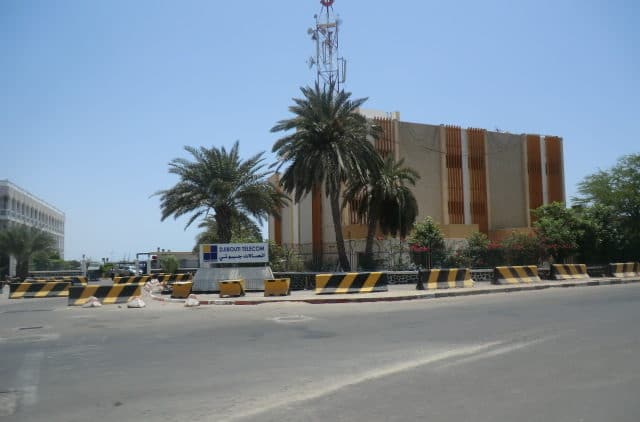
The small African nation of Djibouti is quite possibly the least democratic democracy in the world. Its president, Ismail Omar Guellah, came to power in 1999. Since then he has won three elections, none of which could reasonably be described as a free and open contest.
In 2005 the opposition parties believed the process was so rigged against them that they boycotted the election altogether, leaving Guellah to romp home with 100% of the vote. Guellah’s announcement that he would stand again in 2011 was met by a wave of popular protest. The police responded by arresting hundreds of protestors, including the leaders of the opposition parties. In 2016 a team of BBC journalists were kicked out of the country just days after their arrival. Guellah, to nobody’s surprise, went on to win another landslide victory.
Guellah’s party retains a tight grip on the media. Radio and television are owned by the state, and only 10% of the population have access to the internet. Strict libel and slander laws keep journalists in check, and few would ever dare to raise issues the government might deem controversial. More determined and vocal opponents of the government tend to find themselves treated to a lengthy stay in one of Djibouti’s prison facilities.
Despite widespread evidence of Guellah’s suppression of opposing political parties, he is regarded as a good friend of the West. Djibouti’s relative stability, and its location at the gateway to the Suez Canal, lend it a certain strategic significance. The United States of America, France, Japan, Italy and Spain all have military bases in Djibouti, which might explain their reluctance to criticize Guellah and his apparent subversion of democracy.
8. Cuba

The particular strain of Communism pursued by Cuba is generally regarded as a softer, friendlier variety than that which infected the Soviet Union and North Korea. Fidel Castro, and to a lesser extent his brother and successor Raul Castro, are reviled in some quarters, but draw an equal amount of praise. Fidel was a dictator, but he is often remembered as a relatively benign one. Whether this is an accurate assessment is questionable at best.
It’s certainly true that Cuba under the Castro brothers has achieved some quite remarkable feats. Despite US sanctions that have been in place since 1960, Cuba boasts one of the highest literacy rates in the world. The nation’s health service is internationally acclaimed, and has even been studied by experts from Western democracies such as Great Britain. Life expectancy is higher than in many far wealthier nations, including the United States of America.
Cuba has done these things well, but history has shown that Communist governments rarely embrace criticism, constructive or otherwise. Unfortunately, that’s very much the case in Cuba too. Freedom of speech is protected under the Cuban constitution only if it “conforms to the aims of a socialist society.” Essentially, Cubans are free to say whatever they like, so long as the government likes what they say. Fidel Castro made considerable use of these sweeping powers. Over the course of his rule thousands of journalists and human rights activists were imprisoned, many of them without the luxury of a trial.
7. Sudan
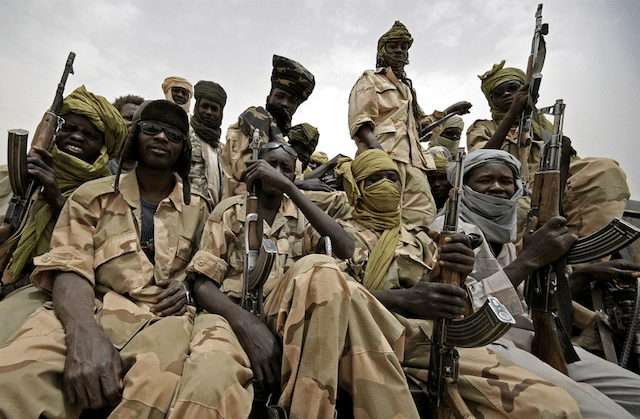
Sudan is Africa’s third largest country, and one of its most troubled. Since 1989 it has been ruled over by President Omar al-Bashir, who swept into power in a bloodless military coup. Since then he has been accused of murder, rape, genocide, and war crimes against his own people. He even shares the distinction of being one of only two current heads of state to have had charges leveled against them by the International Criminal Court; the other being Uhuru Kenyatta of Kenya, although the charges against him have since been dropped.
So long as al-Bashir remains in power, there seems to be little chance of him being brought to trial. His travel options are nonetheless somewhat limited if he wants to be sure of avoiding arrest. In 2015 he was forced to make a hasty retreat from South Africa when the authorities there considered enforcing the ICC’s arrest warrant.
Al-Bashir maintains that he is the victim of a Western smear campaign. He can at least take some comfort in a personal fortune of at least $1 billion, and perhaps a good deal more. The average Sudanese is far less fortunate. With an income of just $960 per-annum and a life expectancy of little more than 60 years they are amongst the poorest people in the world.
6. Vietnam

The US Government went to war in Vietnam out of a fear that Communism might take over the world. The domino theory held that when one nation became infected with Communism its neighbors would soon follow, falling like dominoes. It was instead Communist governments that proved unstable and prone to collapse. Vietnam is now one of only five Communist states left standing – Laos being the only one that doesn’t appear on this list.
Traditional media such as radio, television, newspapers and magazines are firmly under government control. However, more than two-thirds of the population now have access to the internet, and the authorities are struggling to maintain their monopoly on information as Vietnam enters the digital age.
Bloggers who dare to criticize the government risk harassment, intimidation, physical violence, and arrest. To take just one example amongst many, in November 2017 a blogger was sentenced to seven years in prison. His crime was to report on a toxic spill at a steel mill, which dumped cyanide and carbolic into the sea and saw 70 tons of dead fish washed up on the shore.
The strong-arm tactics employed by Vietnam’s one-party dictatorship have nonetheless failed to prevent bloggers from criticizing the government. Nor has the government been successful in preventing an increasing number of people from bypassing traditional media and turning to the internet for news.
5. China
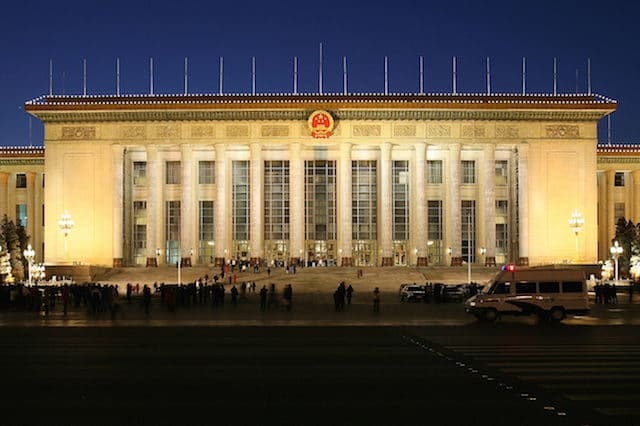
China has more people online than any other nation on Earth – some 751 million of them. But they also face some of the tightest restrictions on just what they can access. Google, Facebook, Twitter, and YouTube are all blocked by China’s “Great Firewall.” Internet users are instead encouraged to sign up to government-run equivalents, where content is tightly controlled and monitored. More enterprising individuals have worked their way around the restrictions by signing up to Virtual Private Networks, but even these are now being targeted by the authorities. In December 2017 a Chinese businessman was sentenced to five-and-a-half years in prison for running a VPN.
If this all sounds alarmingly Orwellian, then much worse is just around the corner. In 2020 the Chinese government plans to assign each citizen a “social ranking” determined by a complex computer algorithm. Each individual’s score will be based on a multitude of factors such as the things they buy, whether they pay their bills on time, and their performance in their job. Almost every aspect of a person’s life will impact their ranking, even their friends. People who associate with high-scoring, compliant citizens will have their own ranking pulled up, but the reverse will also apply.
With each individual’s social ranking score made public, those at the lower end of the scale will be impacted in their ability to obtain loans, housing, work, and even foreign travel. Details of exactly how the algorithm will work have not been released, but it has been revealed that a person’s behavior will be factored into their score. Compliance will be rewarded, and it’s more than likely that any criticism of the government will be punished.
4. Syria
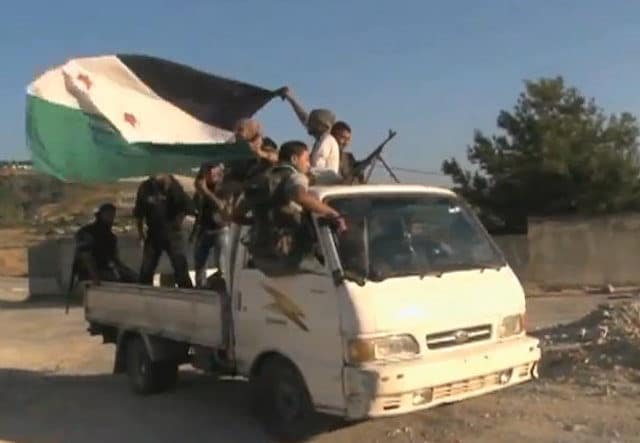
President Bashar al-Assad came to power in Syria following the death of his ruthless father in June 2000. In those early days of his rule, hopes were high that the former eye doctor would emerge as a champion of freedom and democracy. Assad promised change and democracy, granting permission for Syria’s first independent newspaper to begin publishing. He even released anti-government activists and closed Syria’s notorious Mezzeh Prison, where political prisoners were reportedly beaten and tortured.
Within just a year everything changed. Released prisoners were rounded up and imprisoned again, promised reforms canceled, police and security officials retained the right to torture suspects and prisoners, and Syria’s brief flirtation with an independent press ended. It may have been that Assad was forced to change track by elements within his own party. Another possibility is that the so-called Damascus spring was always conceived as a plan to lure political opponents into the open.
If Assad did take office with good intentions, then things have gone rapidly downhill from there. With Syria locked in a vicious and complex civil war since 2012, the Assad regime has been accused of the torture and murder of prisoners, besieging and starving rebel-held cities, and crimes against humanity. However, it does appear that Assad’s brutal methods have been successful in keeping him in power.
The World Bank estimates the cost of rebuilding Syria will be in excess of $200 billion. Given his record so far, it seems unlikely that Assad will want to build a new Syria based on openness and freedom.
3. Turkmenistan
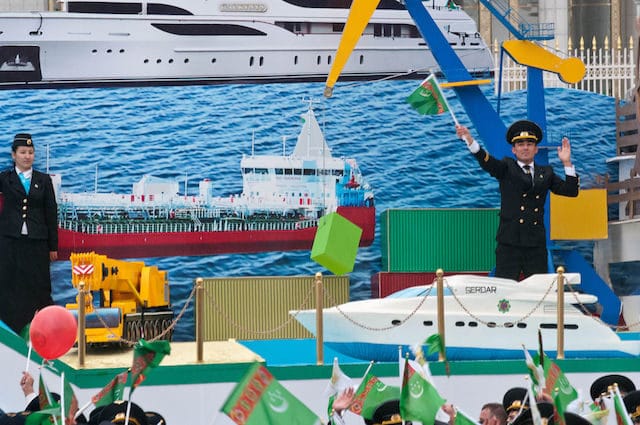
Turkmenistan gained its independence from the Soviet Union in 1991. Since then it’s gained a reputation for being one of the most authoritarian, and downright strange, countries in the world.
Saparmurat Niyavoz, Turkmenistan’s president until his death in December 2006, combined eccentricity with an iron fist. Ballet, opera, and circuses were all banned. As were beards, facial hair, and gold teeth, which Niyavoz condemned as being unhygienic. Enough paintings, pictures, and statues of Niyavoz were plastered around Turkmenistan as to outnumber the country’s five-million inhabitants. He named the month of January, several cities, and even a breed of horses after himself. His mother was not forgotten, and both the month of April and, bizarrely, bread were renamed in her honor.
Niyavoz’s successor, Gurbanguly Berdimuhamedow, reined in some of the strangeness, but his authoritarian instincts seem to be as strong as his predecessor’s. With complete control of the media, Berdimuhamedow has fashioned himself as the “protector” of the people. A recent video featuring Berdimuhamedow dressed in army fatigues as he shows off his skills with an assault rifle has been widely mocked and parodied.
2. Eritrea
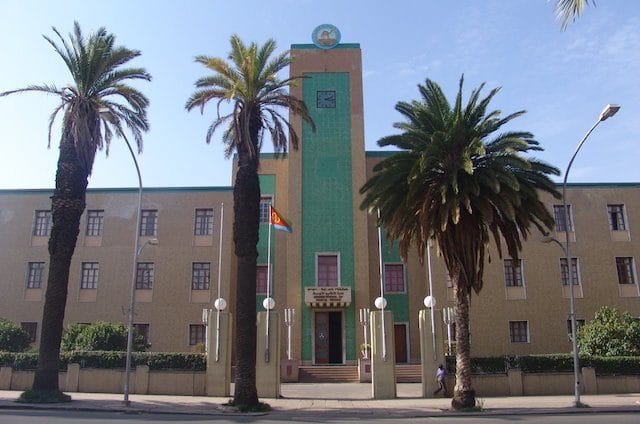
Sometimes referred to as Africa’s Hermit Kingdom, Eritrea gained its independence from Ethiopia in 1961. Since then Eritreans have had just one president, a grand total of zero elections, and years of wars and border disputes with their Ethiopian neighbor.
The Ministry of Information controls the entire media, which devotes much of its energy towards showering praise on President Isaias Afwerki. Eritrea’s impoverished people have the lowest proportion of internet connections in the world, and thus almost no opportunity to access alternative points of view.
While the government claims that Eritrea is an oasis of peace and tranquility, many of those who have fled the country claim they had been effectively enslaved by the state.
At the age of 18 every Eritrean becomes eligible for national service with the military. In theory this should last for 18 months, but in practice it can go on indefinitely. Until such time as they are released, conscripts have almost no control over their lives. They are not permitted to marry, could be stationed anywhere in the country, and are put to work on government infrastructure projects such as building roads. In return they receive a meager wage that’s scarcely enough to fend off starvation.
Any hint of insubordination is dealt with ruthlessly. Asking for leave, complaining, and even praying can lead to arrest and detention. Thousands of Eritreans attempt to flee the country every year. The official penalty for desertion is five years imprisonment, but there are reports that a shoot to kill policy is in place.
1. North Korea
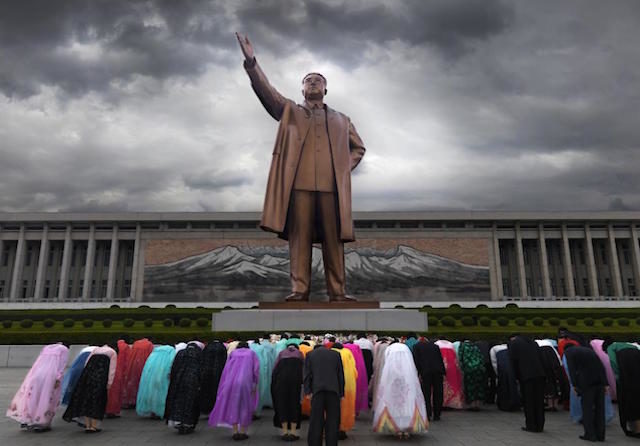
It’s with good reason that North Korea is sometimes referred to as the Hermit Kingdom. Since its creation in 1948, one family has passed down power from father to son. Each member of the Kim dynasty has wielded that power in the manner of a despotic medieval monarch. There were some hopes that Kim Jong Un, who was educated in the West, might prove to be more open and conciliatory than his father and grandfather. He has instead continued in the family tradition of murdering rivals and loudly threatening South Korea and the United States of America with destruction.
North Korean media is devoted to portraying the Kim family as benevolent godlike geniuses. North Koreans are told they are the wealthiest and most fortunate people in the world. This was demonstrably false even in the late 1960s and early 1970s when the economy was outperforming that of their South Korean neighbor. It’s an even harder sell now that South Korea has become one of the wealthiest nations in the world, while the North Korean economy collapsed to the point that as many as 3 million people may have died of starvation in the 1990s.
If the North Korean people ever realize the extent of the lie perpetrated on them, it might prove impossible for the government to retain its grip on power. The Kim family’s solution has been to create a sealed society, with little information allowed in or out. Any North Korean found listening to a foreign radio station, watching a foreign movie, or in possession of a foreign book or newspaper risks arrest, torture, and deportation to one of North Korea’s brutal prison camps.
The aggressive rhetoric and bizarre claims coming out of North Korea on a regular basis are such that a satirical Twitter account, purporting to be North Korea’s official news service, has been mistaken for the real thing by several respectable media outlets.